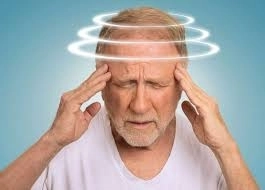
Inner Ear Vertigo: Causes, Treatment, and Prevention Options
Published on: 2025-06-14 | Written by: Dr. Ali Suleiman, Ear, Nose and Throat Specialist
What Is Inner Ear Vertigo?
Inner ear vertigo is a common condition that causes a sudden sensation that you or your surroundings are spinning or moving, even when everything is still. This spinning feeling, known as "vertigo," is caused by dysfunction in the vestibular system of the inner ear, which is responsible for balance.
Common Causes of Inner Ear Vertigo
According to Dr. Ali Suleiman, several key factors can cause inner ear disturbances that lead to vertigo, including:
-
Benign Paroxysmal Positional Vertigo (BPPV): The most common type of vertigo, caused by dislodged calcium crystals in the balance canals.
-
Vestibular Neuritis: A viral infection that affects the vestibular nerve.
-
Meniere’s Disease: A chronic condition due to fluid buildup in the inner ear.
-
Vestibular Migraine: Causes vertigo episodes associated with migraine symptoms.
-
Head or Ear Trauma: Such as a concussion or direct impact.
-
Medication Side Effects: Some drugs can affect the inner ear’s balance function.
Symptoms of Inner Ear Vertigo
-
Sensation of spinning or motion
-
Loss of balance or difficulty standing
-
Nausea and vomiting
-
Ringing in the ears (tinnitus)
-
Temporary hearing loss
-
Involuntary eye movements (nystagmus)
Diagnosis
Dr. Ali Suleiman emphasizes that diagnosis relies on careful clinical evaluation and balance tests, including:
-
The Dix-Hallpike test to detect positional vertigo
-
Hearing tests
-
MRI scans to rule out neurological causes
-
Vestibular function and eye movement tests
Available Treatment Options
-
Vestibular Rehabilitation Therapy (VRT):
Physical therapy exercises like the Epley maneuver for BPPV. -
Medications:
-
Antivertigo agents such as Meclizine
-
Anti-nausea medications
-
Steroids (for viral inflammation)
-
-
Surgical Treatment (rare):
For severe or unresponsive cases, options may include vestibular nerve section or endolymphatic sac surgery in Meniere’s disease.
Tips for Preventing Inner Ear Vertigo
-
Avoid sudden head movements
-
Reduce salt and caffeine intake
-
Stay well-hydrated
-
Manage stress and anxiety
-
See a specialist if vertigo episodes persist
When to See a Doctor?
If you experience frequent vertigo attacks accompanied by hearing loss, ringing in the ears, or severe nausea, Dr. Ali Suleiman advises visiting an ENT specialist for accurate diagnosis and effective treatment planning.

